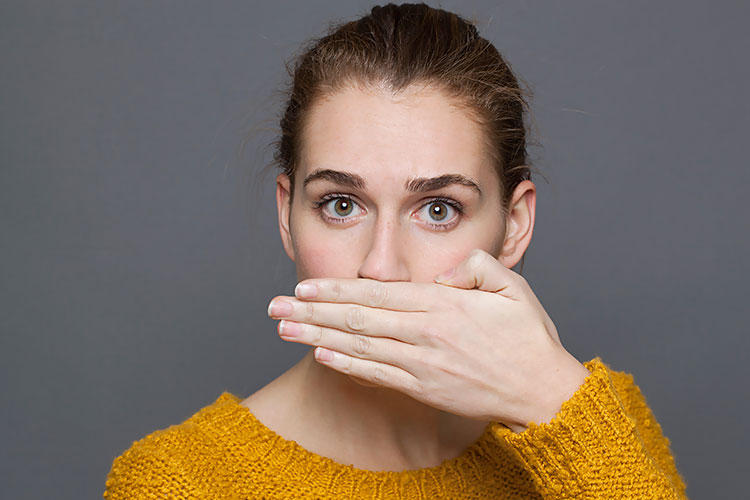- Address
- 26 North Park Boulevard
- Glen Ellyn, IL 60137
- Get Directions
- Phone
- (630) 858-8800
- SmileGlenEllyn@gmail.com

Halitosis, also known as bad breath, is an unpleasant and embarrassing condition which can severely affect self-esteem and your relations with others. Exhaling a foul reek with each word is something that can give even the boldest person pause, and can have serious emotional and social consequences. Furthermore, in some cases, it is a symptom of a serious internal medical problem which needs attention before it reaches an alarming stage. Both work associations and intimate relationships can suffer as a result of halitosis, and emotional impacts can include loss of self-confidence, feelings of depression and isolation, and general misery.
Here at the office of Dr. Gibbs, we treat halitosis as a serious medical problem and will do our best to help you free yourself of bad breathe. This problem is very frequent, and in the United States alone slightly less than one-third of people suffer from it. There are many potential causes for this condition, which helps to explain why it is so widespread:

One origin for halitosis stands head and shoulders above all the others, however – dental problems. Tonsil stones, or tonsilloliths, are not widely known as a possible cause, yet are one of the leading causes of bad breath. These hard accretions of debris and bacterial biofilm can be extracted from the tonsils by your dentist using a specialized metal scoop or a laser treatment.
Cavities, decaying teeth, broken or leaking fillings, impacted teeth, thick layers of untended plaque, and periodontal disease are all prime candidates for the source of reeking breath, too. All of these oral problems create habitats where bacteria can multiply and release sulfur byproducts, creating the rotten smell of halitosis. Similarly, abscesses, full or partial dentures, fungal infections, and oral tumors can all create distasteful odors, too.
Fortunately, there are many steps you can take to conquer these halitosis-causing problems:
Our first priority is restoring your oral health and cleanliness, and give you fresh breath again!
If you would like to know more about halitosis and bad breathe, call (630) 326-5453 today or make an appointment online.
We’ve filled our website with information about our doctors, our team, and our services including family dentistry we offer, location, maps and business hours. Please feel free to take a look around to learn more about what we do and how we can help keep your smile healthy and stunning for a lifetime. We want you to feel confident that when you choose us, you’re choosing to receive the best dental care available.